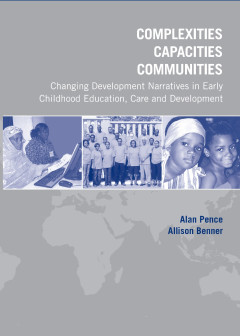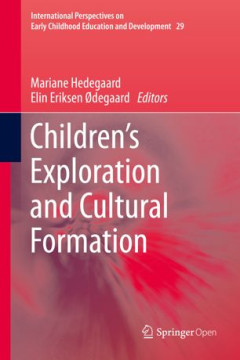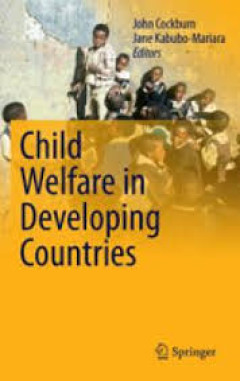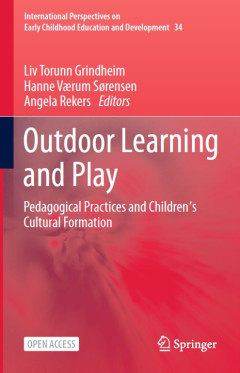Ditapis dengan

Complexities, capacities, communities:changing development narrativesin early…
The term ‘capacity building’ has come into common usage in twenty-first century international development. While the term means different things to different people, it is often used to describe an infusion of knowledge or skills to help ‘build’ a government’s or institution’s ability to address key development challenges. However, like other well intentioned interventions from the …
- Edisi
- -
- ISBN/ISSN
- 9781550585650
- Deskripsi Fisik
- iv, 118p. : ill
- Judul Seri
- -
- No. Panggil
- 305.231 PEN c

Children's exploration and cultural formation
This open access book examines the educational conditions that support cultures of exploration in kindergartens. It conceptualises cultures of exploration, whether those cultures are created through children’s own engagement or are demanded of them through undertaking specific tasks within different institutional settings. It shows how the conditions for children’s exploration form a web of…
- Edisi
- -
- ISBN/ISSN
- 9783030362713
- Deskripsi Fisik
- VIII, 187 p.
- Judul Seri
- -
- No. Panggil
- 374 CHI c

Young children's play and environmental education in early childhood education
In an era in which environmental education has been described as one of the most pressing educational concerns of our time, further insights are needed to understand how best to approach the learning and teaching of environmental education in early childhood education. In this book we address this concern by identifying two principles for using play-based learning early childhood environmental …
- Edisi
- -
- ISBN/ISSN
- 9783319037400
- Deskripsi Fisik
- 88 p.; 22 cm
- Judul Seri
- -
- No. Panggil
- 372.21 YOU y

Child welfare in developing countries
What factors affect child welfare? How can policy improve child welfare? In developing countries, there has been relatively little empirical work on the analysis and measurement of child poverty. Further, poverty has many dimensions, including mortality, morbidity, hunger, illiteracy, lack of fixed housing, and lack of resources, and cannot be assessed with a single measurement method. Based…
- Edisi
- -
- ISBN/ISSN
- 9781552504888
- Deskripsi Fisik
- x, 298 p.
- Judul Seri
- -
- No. Panggil
- 362.7091724 CHI c

Outdoor learning and play :pedagogical practices and children's cultural form…
This Open Access book examines children’s participation in dialectical reciprocity with place-based institutional practices by presenting empirical research from Australia, Brazil, China, Poland, Norway and Wales. Underpinned by cultural-historical theory, the analysis reveals how outdoors and nature form unique conditions for children's play, formal and informal learning and cultural formati…
- Edisi
- -
- ISBN/ISSN
- 9783030725952
- Deskripsi Fisik
- xv, 201p. : ill.
- Judul Seri
- -
- No. Panggil
- 372.1384 OUT o
 Karya Umum
Karya Umum  Filsafat
Filsafat  Agama
Agama  Ilmu-ilmu Sosial
Ilmu-ilmu Sosial  Bahasa
Bahasa  Ilmu-ilmu Murni
Ilmu-ilmu Murni  Ilmu-ilmu Terapan
Ilmu-ilmu Terapan  Kesenian, Hiburan, dan Olahraga
Kesenian, Hiburan, dan Olahraga  Kesusastraan
Kesusastraan  Geografi dan Sejarah
Geografi dan Sejarah